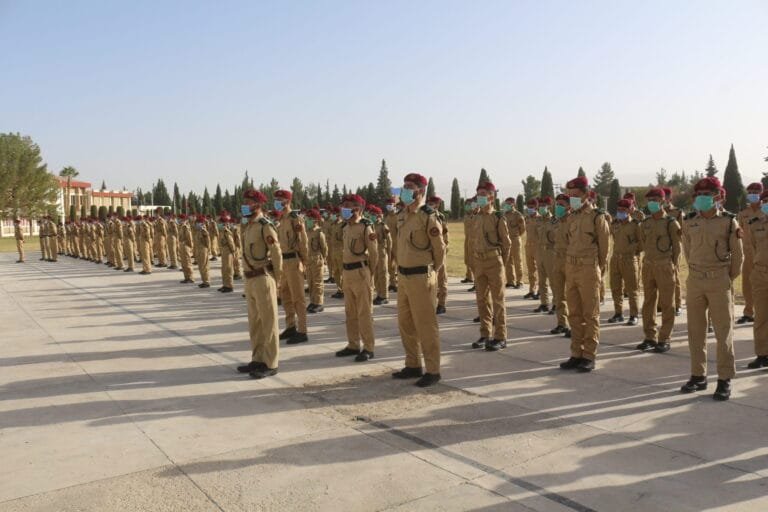General Science MCQ’s For Test Preparation.
1. What is the largest planet in the Solar System?
o Answer: Jupiter
2. What is the smallest planet in the Solar System?
o Answer: Mercury
3. What is the brightest star in the night sky?
o Answer: Sirius
4. What is the most common element in the universe?
o Answer: Hydrogen
5. What is the most common element in the Earth’s crust?
o Answer: Oxygen
6. What is the most abundant gas in the Earth’s atmosphere?
o Answer: Nitrogen
7. What is the average temperature of the Earth’s surface?
o Answer: 15 degrees Celsius
8. What is the Earth’s rotation period?
o Answer: 24 hours
9. What is the Earth’s revolution period?
o Answer: 365.25 days
10. What is the Earth’s distance from the Sun?
o Answer: 150 million kilometers
11. What is the moon’s rotation period?
o Answer: 27.3 days
12. What is the moon’s revolution period?
o Answer: 27.3 days
13. What is the moon’s distance from the Earth?
o Answer: 384,400 kilometers
14. What is the Earth’s magnetic field?
o Answer: A magnetic field that surrounds the Earth and protects it from harmful radiation from the Sun.
15. What is the Earth’s atmosphere?
o Answer: A layer of gas that surrounds the Earth and protects it from harmful radiation from the Sun.
16. What is the Earth’s hydrosphere?
o Answer: The water on the Earth’s surface, including oceans, seas, lakes, rivers, and ice caps.
17. What is the Earth’s biosphere?
o Answer: The part of the Earth that contains all living things.
18. What is the Earth’s geosphere?
o Answer: The solid part of the Earth, including the crust, mantle, and core.
19. What is the Earth’s atmosphere made of?
o Answer: Nitrogen, oxygen, argon, carbon dioxide, and other gases.
20. What is the Earth’s hydrosphere made of?
o Answer: Water, ice, and water vapor.
21. What is the Earth’s biosphere made of?
o Answer: All living things, including plants, animals, fungi, and bacteria.
22. What is the Earth’s geosphere made of?
o Answer: The solid part of the Earth, including the crust, mantle, and core.
23. What is the Earth’s climate?
o Answer: The average weather conditions in a particular place over a long period of time.
24. What is the Earth’s weather?
o Answer: The state of the atmosphere at a particular time and place, including temperature, humidity, wind speed, and precipitation.
25. What is the Earth’s rotation?
o Answer: The Earth’s rotation on its axis, which takes 24 hours.
26. What is the Earth’s revolution?
o Answer: The Earth’s revolution around the Sun, which takes 365.25 days.
27. What is the Earth’s orbit?
o Answer: The Earth’s path around the Sun.
28. What is the Earth’s gravity?
o Answer: The force that attracts objects to the Earth’s surface.
29. What is the Earth’s magnetic field?
o Answer: A magnetic field that surrounds the Earth and protects it from harmful radiation from the Sun.
30. What is the Earth’s ozone layer?
o Answer: A layer of ozone in the Earth’s atmosphere that protects it from harmful ultraviolet radiation from the Sun.
31. What is the Earth’s atmosphere?
o Answer: A layer of gas that surrounds the Earth and protects it from harmful radiation from the Sun.
32. What is the Earth’s hydrosphere?
o Answer: The water on the Earth’s surface, including oceans, seas, lakes, rivers, and ice caps.
33. What is the Earth’s biosphere?
o Answer: The part of the Earth that contains all living things.
34. What is the Earth’s geosphere?
o Answer: The solid part of the Earth, including the crust, mantle, and core
35. What is the Earth’s crust made of?
o Answer: The Earth’s crust is made of rocks and minerals.
36. What is the Earth’s mantle made of?
o Answer: The Earth’s mantle is made of hot, solid rock.
37. What is the Earth’s core made of?
o Answer: The Earth’s core is made of hot, liquid metal.
38. What is the Earth’s oldest rock?
o Answer: The Earth’s oldest rock is about 4 billion years old.
39. What is the Earth’s youngest rock?
o Answer: The Earth’s youngest rock is about 1 million years old.
40. What is the Earth’s largest ocean?
o Answer: The Earth’s largest ocean is the Pacific Ocean.
41. What is the Earth’s smallest ocean?
o Answer: The Earth’s smallest ocean is the Arctic Ocean.
42. What is the Earth’s highest mountain?
o Answer: The Earth’s highest mountain is Mount Everest.
43. What is the Earth’s lowest point?
o Answer: The Earth’s lowest point is the Dead Sea.
44. What is the Earth’s largest desert?
o Answer: The Earth’s largest desert is the Sahara Desert.
45. What is the Earth’s largest rainforest?
o Answer: The Earth’s largest rainforest is the Amazon rainforest.
46. What is the Earth’s largest river?
o Answer: The Earth’s largest river is the Amazon River.
47. What is the Earth’s largest lake?
o Answer: The Earth’s largest lake is Lake Baikal.
48. What is the Earth’s largest island?
o Answer: The Earth’s largest island is Greenland.
49. What is the Earth’s largest country?
o Answer: The Earth’s largest country is Russia.
50. What is the Earth’s smallest country?
o Answer: The Earth’s smallest country is Vatican City
Question Set No 2.
1. What is the process of converting water into water vapor?
o Answer: Evaporation
2. What is the process of converting water vapor into liquid water?
o Answer: Condensation
3. What is the process of converting liquid water into ice?
o Answer: Freezing
4. What is the process of converting ice into liquid water?
o Answer: Melting
5. What is the process of converting liquid water into water vapor, then back into liquid water?
o Answer: The water cycle
6. What is the process of moving water from the Earth’s surface to the atmosphere?
o Answer: Evaporation
7. What is the process of moving water from the atmosphere to the Earth’s surface?
o Answer: Precipitation
8. What is the process of moving water from the Earth’s surface to the ocean?
o Answer: Runoff
9. What is the process of moving water from the ocean to the Earth’s surface?
o Answer: Evaporation
10. What is the process of moving water from the Earth’s surface to the atmosphere, then to the ocean, then back to the Earth’s surface?
o Answer: The global water cycle
11. What is the process of moving water from the Earth’s surface to the atmosphere, then to the ocean, then back to the Earth’s surface, and so on?
o Answer: The water cycle
12. What is the process of plants absorbing water from the soil and using it to make food?
o Answer: Photosynthesis
13. What is the process of animals eating plants or other animals and using the food to get energy?
o Answer: Respiration
14. What is the process of animals breaking down food and releasing waste products?
o Answer: Excretion
15. What is the process of animals moving from one place to another?
o Answer: Locomotion
16. What is the process of animals sensing their environment and responding to it?
o Answer: Response
17. What is the process of animals growing and developing?
o Answer: Growth and development
18. What is the process of animals reproducing and creating new offspring?
o Answer: Reproduction
19. What is the process of animals dying and decaying?
o Answer: Death and decomposition
20. What is the process of plants growing and developing?
o Answer: Growth and development
21. What is the process of plants reproducing and creating new offspring?
o Answer: Reproduction
22. What is the process of plants dying and decaying?
o Answer: Death and decomposition
23. What is the process of the Earth’s climate changing over time?
o Answer: Climate change
24. What is the process of the Earth’s surface changing over time?
o Answer: Erosion and weathering
25. What is the process of the Earth’s crust moving over time?
o Answer: Plate tectonics
26. What is the process of the Earth’s atmosphere changing over time?
o Answer: Atmospheric change
27. What is the process of the Earth’s oceans changing over time?
o Answer: Ocean change
28. What is the process of the Earth’s life changing over time?
o Answer: Evolution
29. What is the process of the Earth’s resources being used up over time?
o Answer: Resource depletion
30. What is the process of the Earth’s environment being damaged over time?
o Answer: Environmental damage
31. What is the process of humans trying to protect the Earth’s environment?
o Answer: Environmental protection
32. What is the process of humans trying to live in harmony with the Earth?
o Answer: Sustainability
33. What is the process of humans trying to explore the universe?
o Answer: Space exploration
34. What is the process of humans trying to understand the universe?
o Answer: Astronomy
35. What is the process of humans trying to create new technologies?
o Answer: Technology
36. What is the process of humans trying to improve their lives?
o Answer: Progress
37. What is the process of humans trying to make the world a better place?
o Answer: Hope
38. What is the process of humans trying to understand themselves?
o Answer: Psychology
39. What is the process of humans trying to understand their emotions?
o Answer: Emotion
40. What is the process of humans trying to understand their thoughts?
o Answer: Thought
41. What is the process of humans trying to understand their behavior?
o Answer: Behavior
42. What is the process of humans trying to understand their relationships?
o Answer: Relationships
43. What is the process of humans trying to understand their culture?
o Answer: Culture
44. What is the process of humans trying to understand their world?
o Answer: Worldview
45. What is the process of humans trying to find meaning in life?
o Answer: Meaning
46. What is the process of humans trying to live a good life?
o Answer: Ethics
47. What is the process of humans trying to make a difference in the world?
o Answer: Activism
48. What is the process of humans trying to leave a legacy?
o Answer: Legacy
49. What is the process of humans trying to understand the nature of reality?
o Answer: Metaphysics
50. What is the process of humans trying to understand the nature of knowledge?
o Answer: Epistemology



